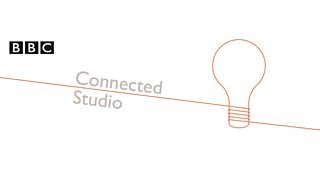The UK has a special place in the story of digital pioneering. Birthplace of the man who invented the – it’s also the home of , the world’s first and game-changing game-makers like and . From Tim Berners-Lee, Alan Turing, and Lord Byron’s daughter, Ada Lovelace to Grand Theft Auto to Moshi Monsters – it’s an impressive roll-call.
But we have a growing digital skills deficit that threatens our future potential and impact on the global stage.
The Â鶹ԼÅÄ is uniquely placed to play its part as a catalyst for change. We want to work in partnership with others to shine a spotlight on the wonderful world of digital, and to help inspire people to see their own creative potential within it. The Â鶹ԼÅÄ wants to do its bit to ‘bring digital home’.
I'm involved in developing a number of plans to do this – and just one of the challenges we want to address is this: what’s the best digital solution we could create to inspire younger teenagers – and especially girls - to discover coding in an appealing and entertaining way? And how can we help ignite their creative potential?
If you’d like to help us meet this challenge, this is the plan.
The Â鶹ԼÅÄteam is offering digital agencies, tech start-ups and developers (including Â鶹ԼÅÄ staff) an exciting opportunity. Connected Studio invites partners like these (and maybe like you?), from inside and outside of the Â鶹ԼÅÄ to work together collaboratively on a . The winning ideas could be selected for development into working prototypes and end up being commissioned using Â鶹ԼÅÄ investment. More information and the reasons for coming up with this challenge are outlined in the

Having been a teenager once (too long ago)… I know that whatever the answer is will be a subtle blend of ingredients. Unlike the one I grew up in, today’s digital world is such a collaborative, expressive and social place. The possibilities are endless. And there are some wonderful (and very, very cool) role models out there – too many to mention. People like Emma Mulqueeny from ; like Avid Larizadeh from ; like Joanna Shields from ; like the entrepreneur ; like the model – who loves coding; like Wendy Devolder from ; like Annika Small from ; like Helen Goulden from ; like Kathryn Parsons from . All amazing people who are doing extraordinary things in this space.
When I was a little girl, my Mum had a punch card machine (an offshoot of Charles Babbage's) in our dining room - and worked as a software engineer. Mum told me what she was doing was giving instructions ‘to tell computers what to do’. My Dad – who had been an electrical engineering apprentice in Devonport Dockyard - built us a computer at home, and Mum taught my brother, sister and me how to do flow charts and write simple programs. I was a teenager in the eighties when the Â鶹ԼÅÄ joined forces with Acorn to create the .
Fast forward to today and the lines are completely blurred between the digital and non-digital worlds. Digital is everywhere. My eleven year old god-daughter Ella does her homework on a computer. My seven year old niece Anya could type her name (and mine) on a keyboard before she hit three. It’s not unusual to see a toddler try to ‘swipe’ a TV set; or get frustrated ‘double-clicking’ on an inanimate picture in a book. The younger generation expect digital experiences in everything they do. It’s second nature.
But somewhere along the way, we forgot about teaching our youngsters how to ‘tell computers what to do’. Our country is facing a digital skills shortage. In time, the new which is coming into English schools this September will help pupils in England, but meanwhile as Microsoft discovered, there were more than– and what about everyone else across the UK?
That’s not to say thousands of youngsters have found out anyway – and there are fantastic opportunities out there for anyone whose interest is piqued: , , , to name a few, as well as inspirational community offers like and and bodies like and, the Chartered Institute for IT, as well as and.
But what about the other youngsters – who have yet to stumble upon the feeling of being ‘a genius’ (as one pupil put it to me) - when you can tell a computer what to do or express yourself in a creative, digital way.
I’m hoping we can channel the spirit of the Â鶹ԼÅÄ Micro to breathe life into the aspirations of teenagers today. Who knows, we may end up inspiring the digital pioneers of the future - the next Ada Lovelace or the next Tim Berners-Lee. The Â鶹ԼÅÄ wants to use its unique role to make a difference – and with your help, maybe we will.
You can apply to take part in the Creative Studio: Coding for Teenagers, or find out more about Connected Studio, via the.
Kerensa Jennings is Head of Strategic Delivery, Â鶹ԼÅÄ
